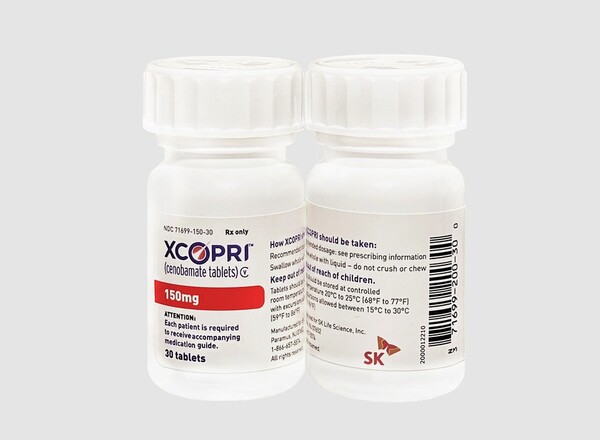Korean medical professionals continue to voice concerns over the delayed introduction of new epilepsy treatments in the country.
The delayed introduction of new epilepsy drugs is not limited to SK biopharmaceuticals’ homegrown drug cenobamate; medical experts pointed out that, more broadly, many global pharmaceutical companies exclude Korea from the initial launch of innovative epilepsy treatments. They stressed that the root causes of this ongoing exclusion must be systematically identified and addressed to improve the treatment environment for Koreans living with epilepsy.

At last Friday’s press conference, Korean Epilepsy Society (KES) President Seo Dae-won, a professor at Samsung Medical Center, highlighted cenobamate as a leading third-generation epilepsy drug and a game changer. He expressed particular pride in the drug because it was developed by SK biopharmaceuticals.
However, Seo emphasized the ongoing issue that cenobamate has not yet been launched in Korea, reflecting a broader pattern where many global pharmaceutical companies delay or exclude Korea from the initial introduction of innovative epilepsy treatments.
He pointed out that the cause of the problem should be found, and a solution should be proposed in the Korean drug pricing system.
Seo pointed out that Korean and foreign pharmaceutical companies delay or do not introduce innovative new drugs for epilepsy because Korea does not match the level of drug prices.
“If we go for a low pricing policy and block the introduction of new drugs like this, we will inevitably fall behind in diagnosing and treating epilepsy, which changes very quickly,” he said, calling for the system to be improved.
The delay in introducing new drugs for epilepsy is a problem that threatens the “right to survival” of patients with drug-resistant epilepsy who cannot respond to existing drugs.
“About 30 percent of all epilepsy is drug-resistant epilepsy,” said Koo Dae-lim, the KES’ general affairs director and a professor at SMG-SNU Boramae Medical Center. “For patients with drug-resistant epilepsy, other treatment options, new drugs, in other words, are important because they are like a right to survival.”
“If a new drug is approved in the U.S. or Europe, it should be introduced in Korea, but there are many cases where the introduction is delayed,” Koo said. "In such cases, patients with epilepsy have no choice but to continue waiting (for the new drug). Since drug-resistant epilepsy is a severe disease, the delay in introducing new drugs is a huge problem for the KES."
To solve the problem of delays in introducing new drugs for epilepsy, the KES has proposed three system improvements to the government. “Some of the solutions that could be considered are to introduce a fast-track system, improve the economic evaluation methodology (for new drugs), and provide policy flexibility (for new drugs for severe diseases),” Koo said.
The KES also pointed out the need to revitalize epilepsy surgery and improve the severity of severe epilepsy in the form of recurrent seizures.
“Although epilepsy surgery is a highly effective treatment for patients with drug-refractory epilepsy, the actual percentage of patients undergoing surgery is low compared to other countries, and the time to surgery is significantly delayed,” Koo said.
Koo said the reason for the delay is not only low awareness of stroke surgery in Korea but also problems with the surgical system. "The lack of hospital systems, including infrastructure and manpower for surgery, is the most important factor, and social awareness of stroke surgery is still very low," he said, emphasizing the need to create an environment where epilepsy surgery can be performed on time for patients.
In this regard, he suggested that guidelines for stroke surgery should be established, awareness campaigns for patients and medical staff should be conducted, and the power system for stroke surgery should be systematized. "We also need government support (for stroke surgery) so that hospitals can activate stroke surgery," Koo noted.
The KES also pointed out that treatment and management should be approached from the perspective of patients with ‘recurrent seizures’ who are in the blind spot of epilepsy.
"Persistent stroke or rare diseases that cause epilepsy are included in rare and difficult diseases and can be applied for special calculation, but (recurrent seizure) epilepsy has a problem that it is difficult to continue to receive support once the patient returns to normal condition through treatment," Koo said.
"Even if you have one or two seizures a year, if you have a series of seizures, you can consider it as a recurrent seizure if you have multiple seizures and there is a risk of going into a status epilepticus for a long time or even a persistent status epilepticus, which is a serious condition that can cause serious physical damage or life-threatening, but it is still a blind spot," Koo pointed out, noting that there is a lack of social awareness and institutional support for people with recurrent seizures.
The KES proposed a new diagnosis called "recurrent seizures."
"It is necessary to consider classifying recurrent seizures as a serious illness and applying special cases for calculation," Koo said, suggesting that the severity of recurrent seizure patients should be applied as severe when hospitalized and that the system should be improved so that if stroke surgery is needed, it can be performed without delay.
Related articles
- Epilepsy, a common disorder in medical blind spots, requires national response
- [BIO USA 2025] SK biopharmaceuticals CEO highlights physician engagement, epilepsy sales in US
- SK biopharmaceuticals' Q1 earnings solid on strong US cenobamate sales
- SK Life Science presents real-world data on epilepsy drug at US neurology meet
- Identifying the genetic cause is key in pediatric epilepsy care
- SK biopharmaceuticals hits record Q2 earnings on Xcopri US sales surge
- SK biopharm’s Xcopri clears phase 3 in generalized seizures, setting up FDA filing
- Dong-A ST scores MFDS nod for epilepsy treatment Xcopri developed by SK biopharm

